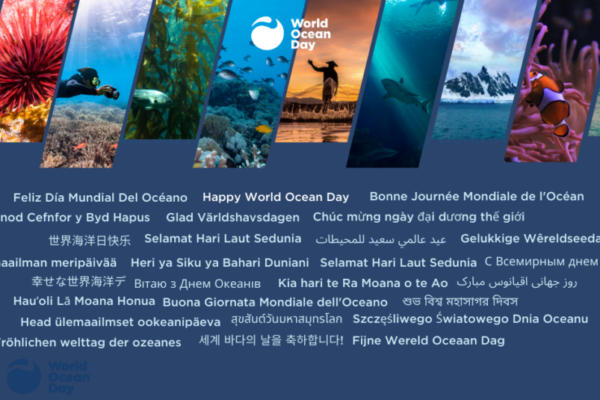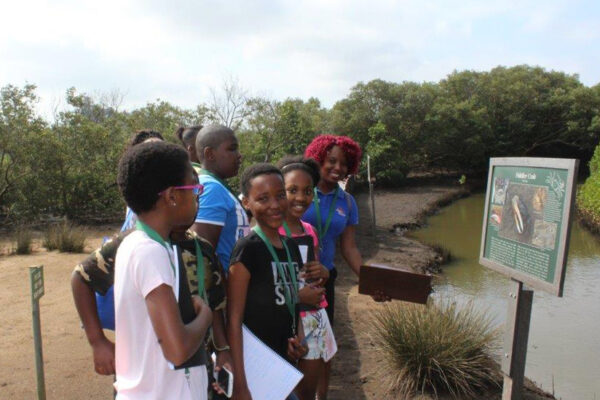In September at the AZA Annual Conference, The Ocean Project hosted a policy engagement and advocacy boot camp for two dozen registrants with a variety of professional responsibilities at their institutions. The participants represented a diverse range of aquariums and zoos (small, medium and large; non-profit, municipal and for profit; coastal and inland), few had experience engaging public officials at the state and federal level, many are relatively new to their positions and the zoo and aquarium profession, and about half were in their late 20’s and early 30’s.
Since I transitioned from serving on the staff of a senior Member of Congress to the non-profit conservation sector, I’ve conducted many similar training sessions. However, in this case I was struck by the energy and from “hallway” conversations – with both the participants and people who were unable to attend – and their strong desire to learn more about how to engage on policy issues to build their institution’s brand and influence decisions.
The workshop built on The Ocean Project’s “First Friday” webinar series and incorporated findings from Phase II of our fisheries and oceans policy visitor engagement program conducted in partnership with New England Aquarium, Mystic Aquarium, Virginia Aquarium, Florida Aquarium, Texas State Aquarium, and Seattle Aquarium, as well as our 2018 visitor engagement pilot projects that also were highlighted in the Packard Foundation-supported Heartwired to Love the Ocean project.
The results of these visitor engagement projects on federal fisheries policy laws also align with The Ocean Project’s public opinion research – all finding that zoos and aquariums are trusted messengers; your visitors are receptive to learning about conservation issues; and want to receive messages and recommended actions that are helpful. Click here for information on our 2019 Visitor Engagement Projects and here for our 2018 visitor engagement pilot projects.
The first and most important fact to convey at advocacy training sessions is that there is no legal prohibition against non-profits (those with 501(c)3 tax status) engaging in activities defined as lobbying, as long as such activities do not exceed 15% of your annual budget. Further, regardless of management structure and tax status of your zoo or aquarium, the educational engagements you have with your guests about saving species and protecting their habitats rarely meet the legal definition of lobbying. Lobbying’s legal line is crossed when you ask a public official to take a certain action on a specific matter pending before Congress or the executive branch (“direct lobbying”); or, ask others to take such actions (“grassroots lobbying”).
Understanding these legal distinctions allowed us to focus on different tactics to educate and engage audiences and public officials, integrating all departments into delivering conservation messages, basic campaign research, and a mock policy engagement and advocacy campaign planning exercise. During the summary and conclusions portion of the agenda we collected feedback from participants on what they learned and what we should convey during a short presentation the following day at the AZA Government Affairs Committee’s meeting.
- Participants recognize that this kind of work is important and zoos and aquariums should be using their “unique and remarkable” to better influence important conservation policy issues
- These activities are consistent with their mission and the collective mission of the AZA community
- Engaging the public more on policy and advocacy can help the general public understand the full scope of what all zoos and aquariums do for the animals they care for and those in the wild
- Better understanding when, where and how they can “tell their stories” to their visitors
- Strong interest in learning more about visitor engagement and advocacy on policy issues through more such workshops, webinars, etc.
- Future session be tailored to a specific segment of AZA professionals and/or focused on a specific issue with the goal of developing an actionable, collaborative campaign plan
Perhaps most interesting to everyone in the room (participants, organizers and facilitators) is that the four breakout groups came to the same conclusion on how to overcome institutional barriers that inhibit or prevent them from engaging on policy issues:
- There is strong resistance to actions that are perceived as lobbying
- Different levels of resistance perceived as advocacy
- But stronger acceptance of actions that are defined as educational
That matters because zoos and aquariums are viewed as safe spaces for people to learn about animals and nature because you are valued sources of information. Therefore, people trust you when recommend specific conservation actions such as reducing use of palm oil, sustainable seafood choices, and saving endangered and threatened species. (See, for instance, The Ocean Project’s related research.)
During the day participants began realizing that, by making subtle adjustments to how they talk about challenges facing fish, wildlife and their habitats, they can incorporate current issues into their onsite and offsite interactions and raise the level of awareness and understanding in their community on important conservation issues. While the ability or comfort level of their institution engaging in lobbying activities differed, participants left the workshop understanding that they can help create the informed and concerned citizenry that is a critical component of effective public policy campaigns.
The Ocean Project had a lot of help and support that allowed us to conduct this workshop and they deserve to be recognized. A special thanks to AZA President Dan Ashe for his opening remarks; Steve Olson, Jennifer Keaton and Josh Brandwein (AZA Government Affairs); Cheryl Wallen (AZA Director, Conferences) and her team; Amy Rutherford (AZA Director, Professional Development and Education); Rich Block w/Santa Barbara Zoo and Kerston Swartz Woodland Park Zoo (Co-Chairs of AZA Government Affairs Committee); and, Erin Meyer w/Seattle Zoo; Kim McIntyre w/Aquarium Conservation Partnership. Finally, a special thanks to our facilitator, Jo-Elle Mogerman (Director–North Campus at St. Louis Zoo) for her efficiently and effectively keeping us on task which allowed us to cover everything and finish 30 minutes early.



